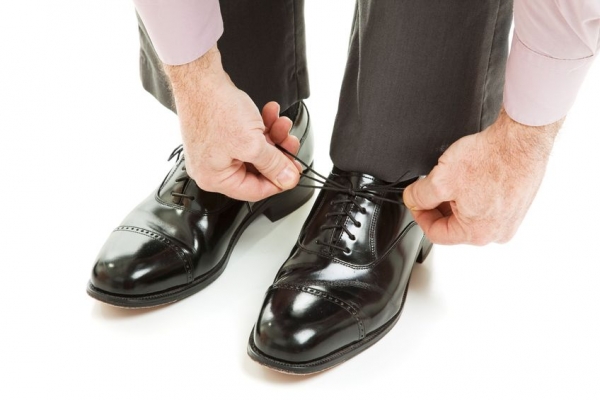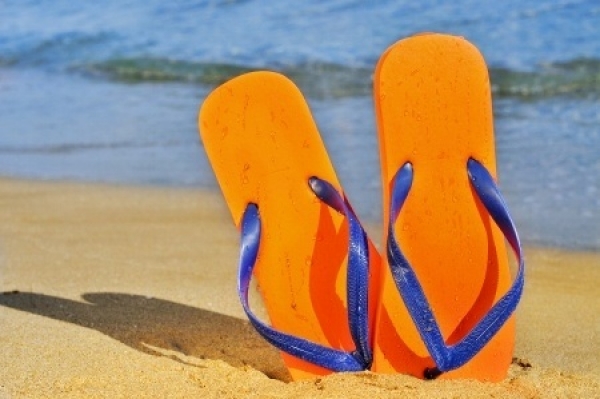Connect With Us
Blogs

Proper Shoes (2)
At Superior Foot & Ankle Care Center, our podiatrists, Dr. Victoria M. Foley or Dr. Constance Ornelas know that your shoes play a significant role in the health of your feet. Many common podiatric disorders can be caused or made significantly worse by wearing improper footwear. That’s why our podiatrists may ask you to bring the shoes you wear most often to our Long Beach office when you come for your appointment. If you have a chronic foot problem, talk to the foot doctor (contact us at 562-420-9800) about the best styles and brands of shoes for your particular condition. Below are some recommendations for choosing good shoes.
- Start by getting your foot measured by a professional. Some studies estimate that as many as 9 out of 10 people are wearing shoes that are too small for them. Foot size can change as you age.
- You should not be surprised if one of your feet measures larger than the other. This is true for most people. Always buy shoes that fit the bigger foot.
- Shop for shoes at the end of the day—that’s when your foot is at its largest and most swollen.
- Choose shoes with good arch support. This will help prevent heel pain and plantar fasciitis. Wearing shoes that are completely flat like flip-flops or ballet slippers greatly increases your risk of this condition.
- Cushioned and molded footbeds not only feel more comfortable, they act as shock absorbers, reducing the impact of your foot hitting the ground with each step you take.
- Wear the type of sock you will most likely use with the shoes you are buying. If the podiatrist has prescribed a custom orthotic, you also try it on with the shoes.
- Always try on both shoes and spend some time walking around the store to check for comfort and fit.
- Don’t buy shoes that pinch your feet or feel tight anywhere. There is no such thing as a “breaking in” period. Shoes should feel comfortable from the moment you leave the store.
They’re so easy to wear—just slip them on and off you go. In flip-flops your feet feel so free, as if there’s hardly anything there and that’s the problem! There isn’t. At Superior Foot & Ankle Care Center we know many of our patients love flip-flops and wear them nearly every day but unfortunately, it’s a shoe choice that can leave your feet vulnerable to injury and result in serious foot problems. Here’s why:
Increased Risk of Injury—let’s start with the obvious: flip-flops provide very little protection for your feet. Since they are so exposed, your toes are not shielded from getting stubbed and cuts can happen when your foot slides off the shoe. In addition, because there are no sides to hold your foot in place, flip-flop wearers are more likely to sprain an ankle.
Toe Stress—think about the motion required to keep flip-flops on. Your toes are constantly gripping the front of the flip-flop. With extended use, the strain to the toes can cause tendonitis and toe deformities such as hammertoe and bunions.
The Fracture Factor—with literally no cushioning, flip-flops offer zero shock absorption as you walk. The repetitive pounding on the bottom of your foot and lack of arch support can result in stress fractures, heel pain and plantar fasciitis. You may also find that you experience pain in your ankles, knees, hip and back because of the altered gait that comes about with prolonged flip-flop use.
Finding a Better Flip-Flop
Due to the popularity of this type of footwear, some manufacturers have begun to make shoes that offer the easy style of flip-flops but with an eye to lessening the damage to your feet. If you are frequent flip-flop wearer, look for the following
- A built-up centerpiece for arch support
- Flip-flops made of leather instead of plastic or vinyl to reduce blisters
- More substance—if you can bend a flip-flop completely in half it does not have enough cushioning or support
- A back strap
If you’ve been wearing flip-flops as your go-to shoes for a long time now and are experiencing pain in your ankle, toes, heel or forefoot, make an appointment at our Long Beach office by calling: (562) 420-9800. Our podiatrists, Dr. Victoria Foley or Dr. Constance Omelas will examine your feet and make specific recommendations about shoe choices that will be the healthiest for your feet.


